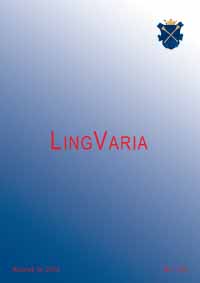Rosyjskie липа, липовый i polskie lipa, lipny
Russian липа, липовый ‘counterfeit’ and Polish lipa, lipny ‘false’
Author(s): Mirosław SkarżyńskiSubject(s): Language and Literature Studies
Published by: KSIĘGARNIA AKADEMICKA Sp. z o.o.
Keywords: etymology; borrowings; thieves’ language; Polish; Russian
Summary/Abstract: The paper debates the interpretation of the etymology of Polish lipa ‘something untrue’ given by A. Bańkowski in his Etymologiczny słownik języka polskiego ‘Etymological dictionary of Polish’. Based on Russian and Polish lexicographical data, the author describes the rise of the Russian noun липа as a derivative from the older adjective липовый ‘false, counterfeit’ in the thieves’ slang of the 19th century, and subsequently its path into colloquial Russian. The word lipa was borrowed into Polish in the second half of the 19th century in the meaning ‘fake passport, document’, also ‘something counterfeit’. It first appeared in the slang of Polish thieves, then penetrated into the dialect of Warsaw, and eventually into colloquial Polish where it is used as a polysemous word, and became the base for the also polysemous derivative adjective lipny.
Journal: LingVaria
- Issue Year: 2015
- Issue No: 19
- Page Range: 195-204
- Page Count: 10

